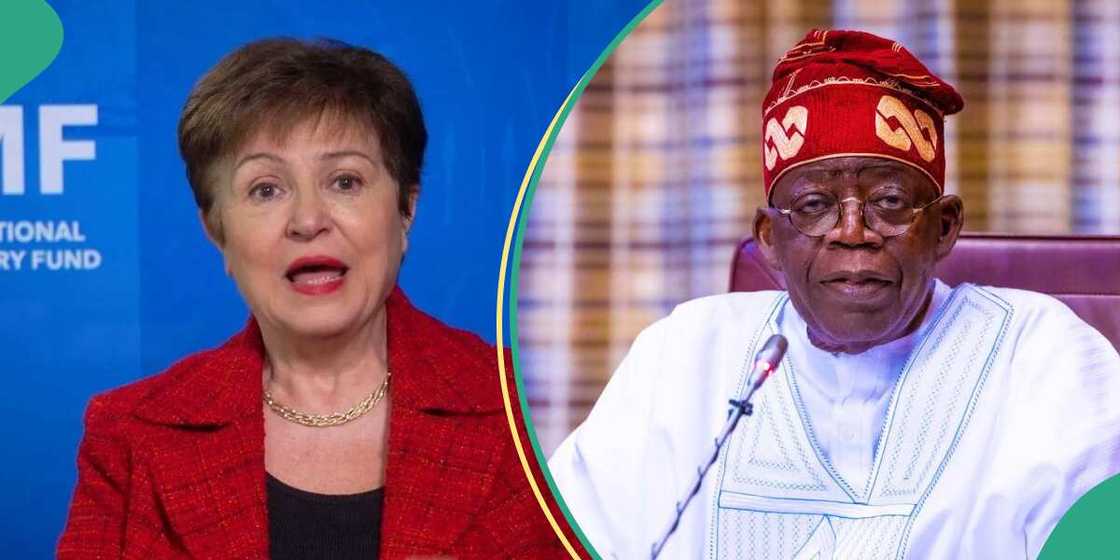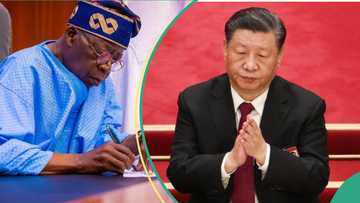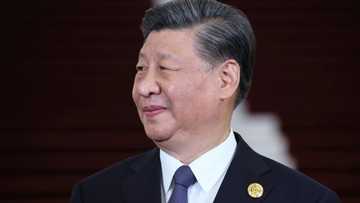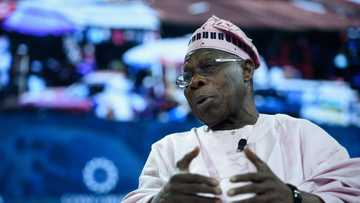IMF Warns Nigeria, Others to Stay Away from Chinese loan, Source Domestic Credit
- IMF said the Chinese government is beginning to reduce its exposure to sub-Saharan African nations
- It said that China has become the region’s largest trading partner, a major credit provider over the last decade
- However, it noted that the Asian nation is also going through its economic difficulties
PAY ATTENTION: Unlock the best of Legit.ng on Pinterest! Subscribe now and get your daily inspiration!
The International Monetary Fund (IMF) has stated that Nigeria and other sub-Saharan African nations are at a turning point in their relations with China.
As a result, the Fund stated that the Chinese government is starting to lessen its exposure in the region.
According to the IMF, African nations must begin to look into domestic funding for their projects.
It stated this in a report titled “At Crossroads: Sub-Saharan Africa Relations with China,” published on Friday, October 13, 2023.

Source: Getty Images
China is Sub-Saharan Africa’s largest trading partner
The report claims that over the past two decades, Sub-Saharan Africa and China have developed mutually advantageous economic relationships. China has grown to be the region’s largest trading partner, a substantial supplier of credit, and a significant investor in foreign direct investment.
But it also noted that China’s assistance to Africa had received some criticism. Due to a downturn in growth and a decrease in appetite for risk, China has curtailed its lending efforts in sub-Saharan Africa.
It noted:
“The projected future deceleration in China’s growth is likely to affect African trading partners negatively over the medium term, mainly through reduced trade. Therefore, countries in the region must strengthen their resilience and implement structural reforms to foster economic diversification, deepen intraregional trade, enhance competitiveness, and catalyze domestic growth.”

Read also
Fintechs, banks, others advise CBN against shutting out cryptocurrency operations in Nigeria
The IMF advised Nigeria to review its economic policy in light of the trend and China’s declining influence on the region.
Building resilience, in the opinion of the IMF, will aid in mitigating the adverse effects of China’s slowing GDP. According to the Fund, increasing regional trade integration allows African states to diversify their export and import markets.
It noted that the African Continental Free Trade Area (AfCFTA) holds great promise. However, the IMF said its implementation will necessitate a significant lowering of trade restrictions and enhancements to the general trading environment. This, it said, includes a reduction of non-tariff trade restrictions.
According to the report, if all of these predictions come true, median goods trade within Africa may rise by 53%, as well as with the rest of the world, by 1
IMF estimates that this may lift 30–50 million people out of extreme poverty and increase the real per capita GDP of the average African nation by more than 10%.
Restoring buffers and bolstering policy frameworks will aid in lowering macroeconomic vulnerabilities and reliance on outside sources.
Speaking to the increasing debt burden of Nigeria, Financial Analyst, Charles Abuede stressed on the utilization of the loan on rewarding projects.
While the loans from international bodies and other countries aims to alleviate the hardships brought about by factors such as mounting inflation, a weakening Naira, and escalating commodity prices, he said there is a need to consider historic context in terms of utilization of similar funds in the past.
He added,
"it is prudent to consider the historical context and acknowledge past challenges related to the allocation and management of public funds in Nigeria."
Legit.ng earlier reported that Nigeria successfully repaid a $1.17 billion debt to China, the World Bank, and others, according to Legit.ng, but it still owes more.
Amid N87trn Debt Stock, Tinubu’s Government Fails to Service Chinese, Other Loans in 2023

Read also
Amid Nigeria's $4bn debt, China commits to financing Abuja-Kano, Port Harcourt-Maiduguri rail projects
The Debt Management Office (DMO) has revealed that Nigeria’s total external debt increased from N49.8 trillion to N87.379 as of June 30, 2023, Legit.ng reported.
The DMO disclosed this in a statement on its website.
The statement revealed that the total public debt containing Nigeria’s external and domestic debts, including the 36 states and Abuja, amounted to N87.739 trillion.
Source: Legit.ng



